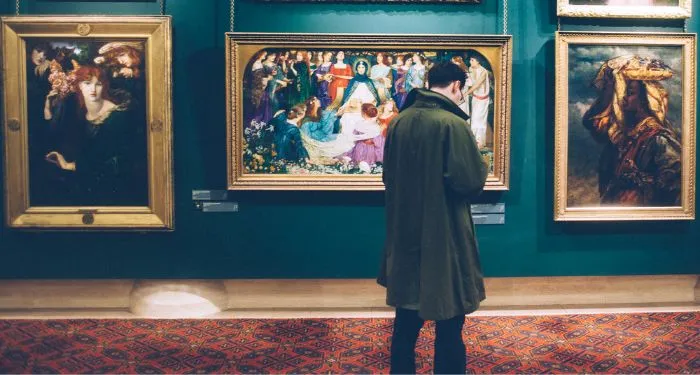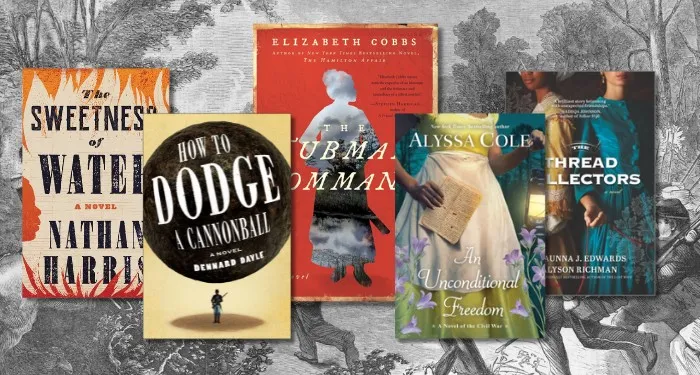There are not many fiction books out there about anthropologists, but those that do exist often shine with insight, erudition and thrills of a real adventure. Below are seven books featuring anthropologists who often grapple with the meaning of their profession and the ethics of their research. Their field-works take them to various continents and countries, from Papua Guinea to Thailand, and from Congo to Peru. Let’s hope writers will be more inspired to write stories featuring anthropologists!
The Storyteller by Mario Vargas Llosa

With the very sad passing of Nobel Laureate Mario Vargas Llosa (The Time of the Hero) this year, there has probably never been a more appropriate time to delve into his work and its meaning, and there has probably never been a more intriguing or colourful character-anthropologist than in Vargas Llosa’s novel The Storyteller (El Hablador). This is a story of brilliant man Saúl Zuratas and his obsession with the tribe of Machiguengas in the forests of Peru. Told at first from the perspective of his university acquaintance, this fiction book about anthropology then details Zuratas’s eventual transformation. Steeped in indigenous folklore and knowledge, the story raises many thought-provoking questions, including on the proper way to preserve indigenous tribes and their traditions, and on the role that the tradition of storytelling plays in indigenous cultures.
The People in the Trees by Hanya Yanagihara

The People in the Trees fuses anthropology, horrifying memoir and fantasy as it tells the story Dr Norton Perina’s travel to one isolated Micronesian island country in the 1950s to study one mysterious “lost” tribe. On his journey, Perina is accompanied by anthropologist Dr Tallent and his colleague Esme Duff. Will they find something that will revolutionise science and medicine forever? For examples, secrets to achieving immortality? Here and there, Yanagihara touches on many aspects related to anthropological research, including moral relativism, speciesism, cultural bias and risks of exploitation. This is an imperfect debut, but nevertheless ceaselessly wondrous and provoking, written with erudition and fluidity.
The Lost Steps by Alejo Carpentier

It may be a little bit of a stretch to call this story “a fiction book about anthropologists”, but the main character here can be considered a very knowledgeable amateur anthropologist, deeply interested in indigenous musical instruments and now embarking on a university-sponsored trip to South America to rediscover his roots and life purpose. This journey will be a journey of self-discovery like he has never experienced before. I have already gushed about Alejo Carpentier in my previous post, and this book by him is even denser and more fulfilling than The Kingdom of This World. It is filled thought-provoking philosophical and anthropological concepts, and is a real plunge into our “primordial psyche”.
Ghost Wall by Sarah Moss

This atmospheric 2018 novella centres on a family who joins a group of anthropologists under the leadership of Professor Slade, who attempt to re-enact the daily life in the Iron Age. The central character is girl Silvie, who becomes apprehensive when her father’s lifelong passion for prehistoric past turns into extreme zealotry. The story raises many thought-provoking questions, and, regarding anthropology in particular, issues surrounding the ethics of anthropological field-work, and the risk of zealous academic inquiries being blind to social realities or human cost.
The title of the book refers to a wall that the Britons built in the Iron Age to ward off enemies and bad spirits. However, it is interesting that in the infamous Stanford Prison experiment of 1971, that tried to re-enact prison conditions, and that also soon slid into madness and chaos, “sacrificing” people, the “ghost wall” was a term referring to a make-shift wall created to simulate reality and block observation from the outside.
Brazzaville Beach by William Boyd

Anthropology is not primatology, but since studying primates sheds light on human evolution and behaviour, and this is also a strand in this book, Brazzaville Beach is a good enough entry here. Born in Ghana and raised in Nigeria, British author William Boyd (1952-) feels as comfortable with the African setting as he does with the British, and this is one of the books that showcases his knowledge of both. Hope Clearwater is a young PhD graduate in animal ethology living in Brazzaville Beach in Africa. Previously, she was also married to a brilliant mathematician, and was also researching chimpanzees with another scholar Eugene Mallobar, finding some surprisingly horrifying truths abut the behaviour of chimpanzees.
Boyd interlaces a compelling story with philosophical musings on war, and animal and human nature, and all in the background of personal and professional upheavals of his heroine – Hope Clearwater.
Euphoria by Lily King

Euphoria is a quintessential fiction book about anthropologists. Inspired by the anthropological work of Margaret Mead, Gregory Bateson, and Reo Fortune of 1933, Lily King tells of three young anthropologists who go on a research trip to New Guinea to study South Pacific tribes. A love triangle emerges encompassing brilliant Nell Stone, her boisterous husband Fen, and melancholy Andrew Bankson. This is a more “down-to-earth” novel than the similarly premised The People in the Trees book above. Even though there is no fantastical myth here to explore, Euphoria‘s atmosphere, interesting portrayal of the clash of egos involved in field-work, shifting perspectives, and the emotional and sexual tensions all make for a compelling read.
Fieldwork by Mischa Berlinski

Short-listed for the National Book Award in 2007 and set in Thailand, this novel focuses on journalist Mischa Berlinski (this identity is fictitious) who tries to answer a series of questions surrounding, first, the murder act and then the suicide of anthropologist Martiya van der Leun, who studied the customs, language and beliefs of the Dyalo tribe. This is a fascinating story, not least because the author decided to employ a number of curious literary devices to make his debut more compelling, including “inserting” himself into the story, and straddling the line between fact (social anthropology) and fiction (murder mystery). This may be the final fiction book about anthropologists on this list, but it is also the most thrilling.



















 English (US) ·
English (US) ·